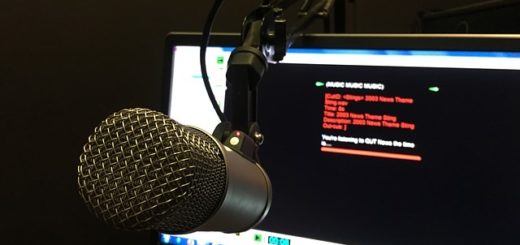Terms of Reference for Conducting a Baseline Survey and Developing Monitoring and Evaluation Plan for Tunawiri Kwa Taka Project
A. INTRODUCTION
ChildFund Kenya is an affiliate of ChildFund International which was registered in1960 as non-governmental organization (NGO) by the Kenyan government through the NGO Coordination Board. Working in 26 out of the 47 counties in Kenya, it implements its program through 11 Local Partner NGOs. ChildFund Kenya reaches more than 1.3 million people who include children, youth, and caregivers.
ChildFund Kenya through funds from The Coca-Cola Foundation are implementing a waste management project in Mukuru dubbed: Tunawiri Kwa Taka Project – “Thriving Through Waste”. The project is aimed at creating a safe, clean, and healthy environment while improving the livelihoods of women and youth in Mukuru-Nairobi City County. All stakeholders including ChildFund are committing to engage in waste management as called upon by African Union to recycle 50% of their urban waste by 2023 (Africa Waste Management, 2018). Without this commitment, serious health issues such as respiratory tract infections, low birth weights, infectious diseases, and environmental consequences like air, land and water pollution, climate change, to mention a few will negatively impact community members, especially women and youth.
ChildFund will work with stakeholders including community groups or networks, National Environment Management Authority (NEMA), the Kenya Association of Waste Recyclers and Nairobi Metropolitan Services (NMS) to build community awareness and capacity on proper waste management.
B. PROJECT EXPECTED OUTCOME AND IMPACT
The overall project Goal (impact) is – To create a safe, clean, and healthy environment while improving the livelihoods of women and youth in Mukuru-Nairobi City County.
To achieve this goal, there are four objectives that must be fulfilled. These objectives aim to ensure the project target group is capacity built, the right government policies are in place through stakeholder participation, the community is aware of waste management processes and practices, and that waste collector groups have the right linkages to commercial and financial actors within their industry. These objectives are:
Objective 1: To improve knowledge and capacity of 418 individuals on waste management-collection, sorting and recycling/reuse-in Mukuru by the end of the project. This will be measured by using pre and post-test evaluations and participants lists from trainings.
Objective 2: To increase the entrepreneurial skills of 400 women and youth aged between 18 and 35 years by 60% by the end of the project through training on business management, keeping financial records and finding new buyers. This will improve their business skills and help increase their waste collection capacity from 2 tonnes to 4 tonnes a month, while also increasing their income 40%, from an average of 90 KSH – or $.78 USD per day. This will be measured by comparing results from baseline/feasibility assessment against those of the endline evaluation.
Objective 3: 20 waste collector groups will have signed marketing contracts with private sector waste recyclers by the end of the project. This will be measured by the number of signed contracts, number of coordination meetings held and number of groups linked to markets. Connections between waste collectors and buyers will be established through coordination forums, which create sustainable linkages within the industry and ensure there is a guaranteed market for the waste collectors.
Objective 4: Stakeholder participation in Nairobi multi stakeholder forums for waste management will increase from 50% to 80% by the end of the project, thereby influencing practice and policies around waste management. This will be measured by number of stakeholders meetings held, number of stakeholders participating in the meetings, high level conversations and commitments made to improve waste management practice and policies.
C. SCOPE OF THE ASSIGNMENT
The main purpose of this proposal is to undertake a baseline study for the Coca-Cola funded project in Mukuru. The objective of the baseline study is to establish baseline information against the project log frame indicators at community level which will be used as a threshold for this project to assess outcomes and impact. The project indicators as stipulated in the project proposal, will form the basis for data collection for this baseline study. The consultant should be open to additional duties during the inception phase to capture relevant information that will enhance implementation approaches. Data obtained from the baseline study will also be utilized to revise the indicators in the current project results framework, for effective monitoring of changes attributed to and contributed by the project. Subsequently, ChildFund Kenya will undertake an end of project evaluation that will compare the projects’ achievements against the findings from the baseline study.
The specific objectives of this assignment are:
- To establish and document the benchmark/status of the project qualitative and quantitative indicators in relation to the above stated result areas.
- Develop an updated key performance measurement framework and the project performance monitoring and evaluation plan including data collection tools and instruments
- Generate a draft baseline report that will be validated during validation workshops by the stakeholders including ChildFund Kenya, Local Partners and other stakeholders.
- Final Baseline Report.
D. METHODOLOGY AND PROCESS
The study will adopt a cross sectional research design that will use mixed qualitative and quantitative approaches. The consultant will be expected to use participatory tools and techniques for data collection, which may include but not be limited to In-depth interview, Key informant interviews, Focus group discussions among others. The methods of sampling, data collection and analysis will be proposed by the consultants and discussed further with the ChildFund Kenya project management team. The consultant will also be expected to undertake a comprehensive desk review of all relevant documents for reference and to inform the baseline study process further. These documents shall include the Project proposal and log frame, County Integrated Development Plans for Nairobi City County, policies and frameworks by partners, and national government. The consultant will have to fully engage the primary project participants (stakeholders) including women, youth, children, community health workers among others who, ChildFund Kenya beliefs play the most significant role in the development process.
Specifically, it is envisaged that the methodology used during this assessment will include, but not necessarily limited to the following:
1. Review of existing secondary information and reports relevant to the baseline study topics. The previous studies and assessments in the project areas by other stakeholders may also be referenced.
2. Discussion with key project staff of ChildFund Kenya, partners at project and country levels and other key informants.
3. Interviews with concerned government agencies, line ministries and stakeholders involved in waste management.
4. Field visits in the implementation areas for data collection and observations.
5. Community level participatory meetings and focused group discussions for data collection and information gathering.
6. Household level survey for data collection through structured questionnaires developed to address the key project objectives and indicators.
7. Special emphasis should be given to ensure participation of women and youth in the process to deeply understand the underlying socioeconomic challenges facing women and youth in the waste management.
8. Use of data/information from local institutions or organizations as deemed appropriate.
9. Data analysis and verification of analyzed data.
The baseline study approach should have strong focus on application of participatory approaches and proven methodology that fits well in the context of local communities and stakeholders. The sampling methodology must have statistical representation of different sub-sections.
E.EXPECTED DELIVERABLES
1. An inception report: An inception meeting will be held between the consultant, project implementation team and ChildFund staff. The inception meeting will provide ChildFund Kenya the opportunity to verify that they share the same understanding about the Terms of Reference with the consultant. An inception report shall be compiled outlining the key scope of the work and intended work plan. The report should therefore detail the consultant’s understanding and interpretation of the TOR, methodology, implementation schedule, and data collection – encompassing: structuring of study; review of documents; quantitative/qualitative data collection; and data collection instruments design, sample size, field work planning and implementation, data collection plan, data entry and analysis plan, and budget forecast. The inception report will be discussed and agreed upon with ChildFund Kenya and project partners.
2. Development of baseline survey instruments for review and approval.
3. Undertake primary and secondary data collection through qualitative and quantitative approaches.
4. Analyze and interpret data and thereafter, prepare a draft baseline study report and share with ChildFund Kenya staff and the key stakeholders for review.
5. Validation Workshop: The draft report will be validated through a centralized workshop organized by ChildFund Kenya to corroborate the findings
6. Draft comprehensive baseline report incorporating feedback from ChildFund review and validation with other stakeholders that will culminate in the final baseline report. The report shall be produced within 20 days after approval of the consultancy
7. The final report: This will be presented 5 days after the validation workshop and receiving comments on the draft report. The content and structure of the final baseline report shall include but not necessarily limited to executive summary, introduction, findings, recommendations, reviewed project results framework including the Project Performance Monitoring Plan and project monitoring tools/instruments.
F. INDICATIVE TIME FRAME
Presumably, 20 working days would be required for the task, which can also be decided upon discussion between both parties. It is expected that the whole task should be finished by 20th September 2022
G. MANAGEMENT AND COORDINATION
The management of the day-to-day activities in the field will be supported by Program Coordinator and M&E Officer at Nairobi Metropolitan Program.
H. ETHICAL GUIDELINES
It’s expected that the consultant will adhere to the following ethical guidelines and principles:
1.Informed consent: All participants are expected to provide informed consent following standards and pre-agreed upon consent protocols i.e., if project beneficiaries are minor’s parents/guardian’s consent should be sought.
2.Compliance to ChildFund Kenya values including Children Safeguarding Policies.
3.Systematic inquiry: The consultant conducts systematic data-based inquiries
4.Integrity/honesty: Evaluator display honesty and integrity in their own behavior and attempt to ensure the honesty and integrity of the entire evaluation process
5.Respect for people: The consultant respects the security, dignity, and self-worth of respondents, programme participants and other stakeholders. It’s expected that the evaluator receives informed consent of the participants to ensure that they can decide in a conscious, deliberate way whether they want to participate; avoid exposing children to harm because of the response.
6.Responsibilities for general and public welfare: The consultant should evaluate and consider the diversity of different stakeholders.
H.COMPETENCIES REQUIRED
ChildFund Kenya seeks to engage the services of qualified and experienced consultant with adequate experience in research and appraisal of development programmes to undertake the assignment.
Desired Qualifications & Experience
The Consultant(s) must have the following qualifications and experience: –
1. Demonstrated previous baseline studies, including participatory assessment methods. A minimum of five (5) years working experience in environmental health, waste management and community development work is highly desired.
2. An advanced degree (Masters and above) in environmental health, development studies or social sciences, M&E, sociology, or Agriculture.
3. Demonstrated practical and recent working experience on a similar value chain will be an added advantage
4. Demonstrated and extensive knowledge and understanding of community development approaches especially in urban informal settlements.
5. Ability to prepare factual and well-articulated evaluation reports. Sample report of 2 previous assignments related to this assignment need to be attached in the Expression of Interest (EoI).
6. Excellent drafting and communication skills in English
7. Fluency in English and Kiswahili
I.BUDGET, LOGISTICS AND PAYMENT
The consultant shall submit a comprehensive financial proposal in Kenya shillings with broken down costs and justification for professional fees, all the logistical costs for the assignment and taxes itemized clearly.
Payment of the consultant will be in three instalments as follows:
1. First instalment: 20% of the total agreed consultancy amount upon submission and acceptance of an inception report
2. Second instalment: 40% paid upon submission and acceptance of data collection tools
3. Third instalment: 40% will be paid upon submission and acceptance of the final report by the consultant
Important Note:
- The Consultant’s compensation shall be paid NET, within 30 days from receipt of a proper invoice unless otherwise specified.
- Payment will be made through direct bank transfer otherwise specified.
- The payment shall be subjected to 5% withholding tax as required by the Law at the time of payment.
J.SUBMISSION OF PROPOSALS
The technical and financial proposals MUST be prepared in line with the implied standards and be submitted timely as indicated in this TOR. A technical team at ChildFund Kenya will review the proposals based on pre-determined objective criteria. Upon selection, the consultant(s)/consulting firm would be invited for a discussion and requested to submit a detailed inception report and work plan prior to starting the assignment. Expression of Interest (EOI) from qualified firms/individual should comprise a comprehensive technical and financial proposals. The EOI will be accepted preferably in soft copy through email and mentioning subject line; “BASELINE SURVEY STUDY –TUNAWIRI KWA TAKA: THRIVING THROUGH WASTE IN NAIROBI COUNTY.
Technical proposals should include the following:
- Profile of the consultant/firm
- Overview of the understanding of the assignment
- The methodologies and approach(es) to be applied in undertaking the assignment
- A comprehensive budget covering professional fees, logistical costs and expenses related to carrying out the assignment including enumerators costs, hall hire etc and taxes.
- Detailed activity timeline for undertaking the assignment
- The report outline that the consultant intends to use for the final report
How to apply
Interested Firms/Individuals who meet the above qualifications should send their applications to the email address: kenyaprocurement@childfund.org by 2nd September 2022 COB. Only shortlisted firms/individuals will be contacted.
ChildFund Kenya is committed to safeguarding the interests, rights, and well-being of children with whom it is in contact and to conducting its programs and operations in a manner that is safe for children.








